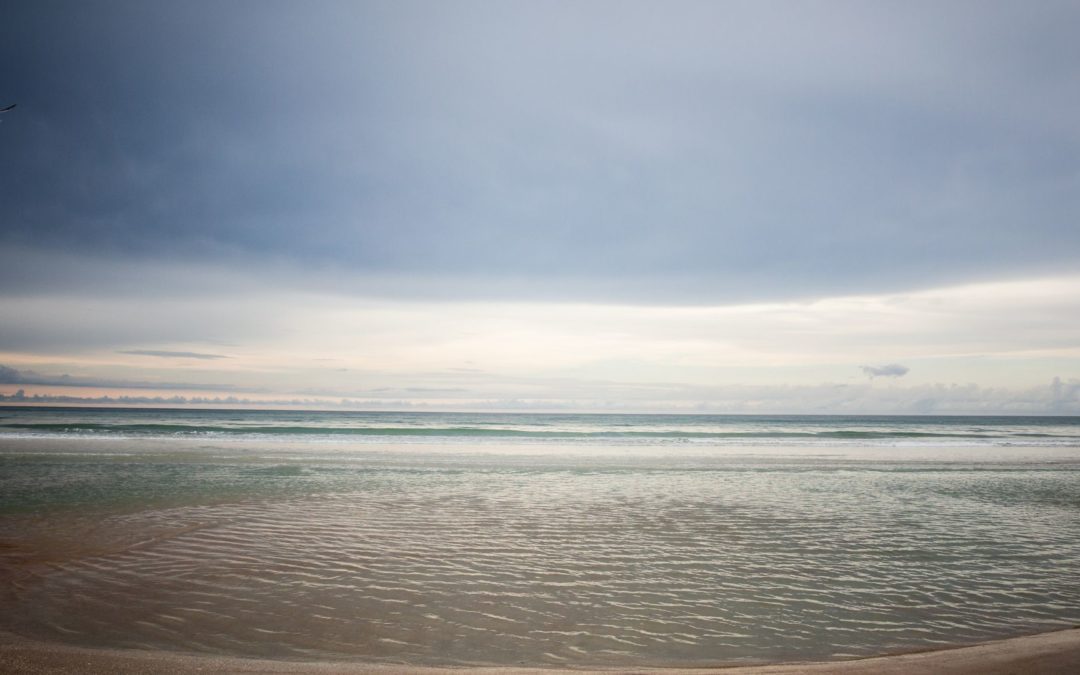The humble air conditioner in Australia is susceptible to the effects of the ocean air.
This is especially true for those parts that are outside all year and must endure the salt-laden spray.
Living by the coast is the Australian dream. Unfortunately, your air conditioner may not be able to enjoy the idyllic beach lifestyle. They are more susceptible to corrosion, damage, and failure.
We don’t like to be the bearers of bad news, but houses within three kilometres of the ocean experience salt damage. This includes lime mortar erosion in brickwork, rusting structural elements, and holes in roof tiles.
Your home’s air conditioner in Australia can also be affected by ocean air. Residential air conditioners can’t work at their peak performance when there is salt in the air. Your Australian air conditioner can even stop working if it isn’t taken care of properly.
So, how exactly do salt spray and ocean air affect air conditioners? And what can you do about it?
Air Conditioner Corrosion
The salt air is refreshing and great for your health. However, it’s high in sodium chloride, which metal appliances tend not to like as much.
This salty residue, which is caused by the moisture in the ocean air, often lands inland and settles on items such as appliances and fixtures. Over time they can cause corrosion and rust.
Consider all the metal components of an air conditioner. There are many potential points for damage—from condenser coils and fins to unit housings and fins.
Salt can make your air conditioner work harder and cause premature wear.
A residential air conditioner can be susceptible to three types of corrosion. This corrosion is most common in the coils and outside units, but it can also occur elsewhere. These are three types of corrosion that beach homes may experience when their air conditioners fail:
Formicary Corrosion
This is a type of corrosion that causes tiny holes to form on the copper tubes’ surface. These tiny holes are not easily seen by the naked eye, so they are often hidden or undiscovered. Corrosion can lead to system failure and cause the refrigerant functions to be ruined.
Pitting Corrosion
This type of corrosion is visible and causes larger holes. This can cause serious issues, so it is important to deal with the corrosion as soon as possible.
Case Corrosion
When the case or outdoor unit is exposed to too much salt, it will become corroded. The case can become damaged and will stop working if it isn’t properly protected.
You don’t have to live near the ocean to feel its effects. According to studies, salt air has been shown to affect metals more than 80km from the coast.
So, what should you do then?
Plan for the Salt Spray
Proper planning is required when installing an air conditioning system. The location of the air conditioner in Australia will protect it from corrosion. Elevating the outdoor unit is a good idea in case of flooding or other similar events.
It is important to keep the system out of direct sunlight as this can accelerate the corrosion process. It is essential to keep the system at least one metre away from trees, fences, and bushes. This will make the system more efficient and protect it from direct sunlight.
Combat the Salt Spray
It is important to maintain your air conditioner’s effectiveness in the face of salty weather, especially if you live near the ocean like in Perth.
You can prevent damage by cleaning your unit regularly and checking for potential rust. Also, you can replace any damaged parts if necessary.
We are experts in this field and recommend that you have at least an annual check-up of your residential air conditioning unit and one to two routine checks for commercial air conditioners every year. This will increase the longevity of your heating or cooling unit by as much as 10 years.
Air Conditioning Efficiency and Filters
A more efficient air conditioner is essential, especially in coastal areas. This will help you save on your energy bills and make the system last longer. It will be less expensive to operate and still work efficiently to maintain cool air.
It is important to replace and clean the filters as often as possible in order to prevent them from bursting. Regular maintenance will keep the filter clean and prevent corrosion. Healthy filters will help keep the system running efficiently and eliminate corrosive substances from the air.
There is so much to Think About!
Australia is subject to a wide range of climates. Depending on where you live, the climate can affect your air-conditioning choices. It is helpful to determine what your needs are for your climate and how seasonal changes could impact your home and residential air conditioner.
IACS provides a solution by MDV Golden Fin. IACS is committed to making sure that your air conditioning system works for you. IACS is committed to understanding your requirements and circumstances so that you are comfortable and satisfied. Contact our expert MDV Australia air conditioning team today.

